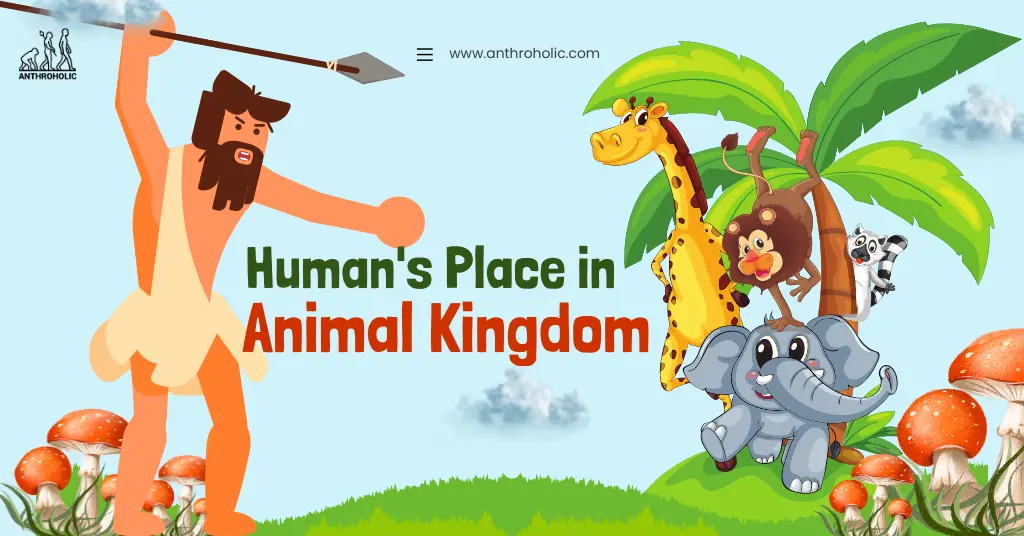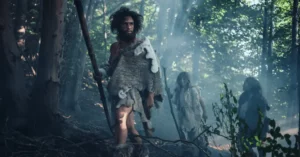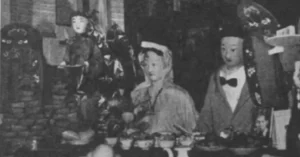AI Answer Evaluation Platform Live Now. Try Free Answer Evaluation Now
Human’s Place in Animal Kingdom
Human beings, often considered a unique entity due to our complex intellectual capabilities and cultural systems, belong to the vast and diverse animal kingdom [1]. We may be leaders in technological innovation, philosophical thinking, and artistic creation, but from a biological standpoint, we are animals. Specifically, we belong to the mammalian class and the primate order.

Humans’ Biological Classification
Human’s place in animal kingdom is determined by the biological classification system called taxonomy. The following table demonstrates the hierarchical categorization of humans [2]:
| Kingdom | Phylum | Class | Order | Family | Genus | Species |
|---|---|---|---|---|---|---|
| Animalia | Chordata | Mammalia | Primates | Hominidae | Homo | sapiens |
Kingdom Animalia
Humans belong to the Animalia kingdom, which comprises all animals. This group is characterized by multicellular organisms that are heterotrophic (derive nutrients from other organisms), have a complex nervous system, and show voluntary motion [3].
Phylum Chordata
Within Animalia, humans belong to the phylum Chordata, featuring organisms with a notochord, a dorsal nerve cord, pharyngeal slits, an endostyle, and a post-anal tail at some stage of their life.
Class Mammalia
As part of the Mammalia class, humans share features like hair or fur, internal fertilization, and mammary glands that produce milk.
Order Primates
The order Primates encompasses humans, apes, monkeys, and prosimians. Characteristics common to primates include large brains, forward-facing eyes, and highly flexible limb structures.
Family Hominidae
Humans belong to the Hominidae family (also known as ‘great apes’), comprising species like orangutans, gorillas, bonobos, and chimpanzees. Members of this family show increased brain size, upright walking, and tool use.
Genus Homo and Species Sapiens
Within the Hominidae family, humans are classified under the genus Homo and species sapiens. Homo sapiens are the only surviving members of the Homo genus, characterized by a highly developed brain capable of abstract reasoning, language, and problem-solving.
Humans’ Unique Characteristics
Although humans are categorized within the animal kingdom, we possess certain unique traits:
- Complex Language Use: While some animals communicate using rudimentary languages, none match the complexity and versatility of human language.
- Culture and Symbolic Representation: Humans have the unique ability to create and pass on culture, as well as to represent objects, individuals, and abstract concepts symbolically.
- Advanced Tool Use: While some animals use basic tools, humans have the capacity to create complex tools and technologies.
- Self-awareness: Humans show a higher level of self-awareness and introspection compared to other species.
Conclusion
Despite our uniqueness and exceptional cognitive abilities, humans are a part of the animal kingdom, standing alongside countless other species in the web of life. Recognizing our position within this vast kingdom can help us better understand our relationship with nature and inspire us to value and protect the biodiversity that shares our planet.
References
[1] Shubin, N. (2008). Your Inner Fish: A Journey into the 3.5-Billion-Year History of the Human Body. Pantheon Books.
[2] Groves, C. (2005). Order Primates. In D. E. Wilson & D. M. Reeder (Eds.), Mammal Species of the World: A Taxonomic and Geographic Reference. Johns Hopkins University Press.
[3] Hickman, C. P., Roberts, L. S., & Larson, A. (2003). Integrated Principles of Zoology. McGraw-Hill.




